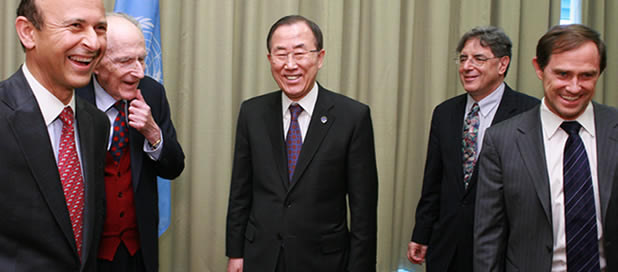Membership supports citizen participation in the foreign policy process
Through its balanced, nonpartisan programs and publications, the FPA encourages citizens to participate in the foreign policy process.
With the goal to inform, engage, and inspire, FPA has furthered its mission to educate the U.S. public on foreign policy through its Great Decisions program, speaking events, and bringing global affairs discussions to communities, teachers and the classroom.
Great Decisions learning groups are now in over 1,200 local communities, 110 secondary schools, and over 100 colleges and universities throughout the U.S., and the television series, broadcast on PBS, reaches an audience estimated at 1.2 million.
At speaking events, lectures and conferences, members meet policymakers face to face, hear their views, and are invited to express their own. From Presidents Franklin D. Roosevelt to Ronald Reagan and Bill Clinton, U.S. and international leaders have given major speeches and discussions on the world’s most-critical issues facing America today.
Educating the U.S. public on foreign policy is at the core of FPA’s mission. By establishing discussion groups across the country, members form a community of people interested in what’s happening in the world. The Great Decisions teaching materials informs teachers on current global issues and allows them to educate the students in their class.
Member ($250)
Admission and guest passes to Membership events.
Subscriptions to selected Foreign Policy Association publications.
Discounted admission to selected events and programs.
Sponsoring Members ($500)
All of the above benefits, plus:
Discounted admission to the annual FPA Leadership Forum.
Invitation and Member discount to the FPA Annual Dinner.
Patrons ($1,000)
All of the above benefits, plus:
Admission to select FPA Fellows’ events.
Invitation and Member discount to the annual FPA Financial Services Dinner.

Your contribution to the Foreign Policy Association is deductible to the fullest extent of the law under section 501 (c)(3) of the IRS code.
Certain goods & services provided in exchange for a donation may reduce the amount of a donor's charitable deduction.





